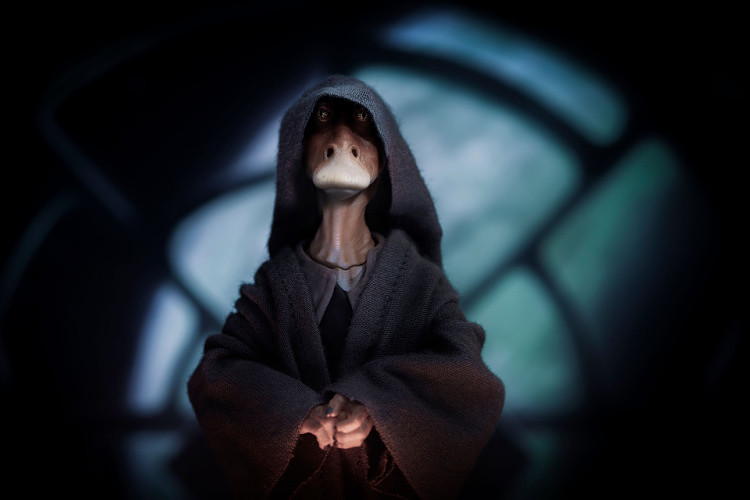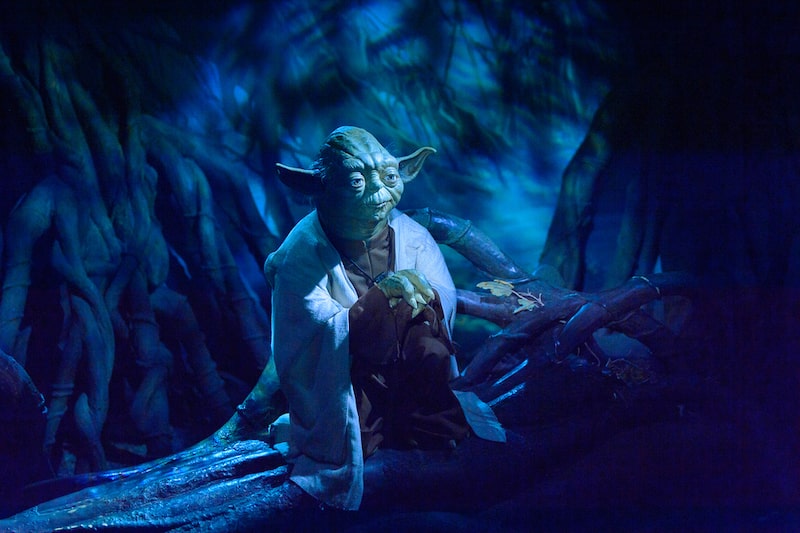Jedi go into exile for a number of reasons. Some exile themselves if they feel they failed to uphold their duty, while the Jedi Order forces others into exile.
Still, exile can be a strategic maneuver that can set the stage for the Jedi Order’s benefit, even when things look bleak.
A Jedi’s motivation or force into exile is more subjective than it is a punishment. Yoda and Obi-Wan Kenobi proved exile is not fully a self-imposed punishment for failure, especially Yoda.
Exile isn’t limited to the Jedi, as many galactic cultures practice it.
Why Do Jedi Go Into Exile?

Any Jedi that turns against the Order or to the dark side must go into exile as a form of punishment. However, Jedi also go into exile if they believe they failed to uphold their duty to protect the Order and the Galactic Republic.
Take Yoda (explained in detail in the next section), who partially self-imposed punishment onto himself when he went into exile on the planet Dagobah following Revenge of the Sith.
However, sometimes going into exile is a necessity for the greater good, as Yoda would show.
Luke Skywalker’s exile was also partially a self-imposed punishment when he failed Ben Solo (Kylo Ren). Furthermore, Luke did not want to face Leia Organa and Han Solo, Ben’s parents.
He also thought he was doing more harm than good, and exile was the way to keep himself from further invoking harm.
In Obi-Wan Kenobi’s case, he went into exile to watch over Luke from a distance, not necessarily because he failed Luke’s father.
So while exile is a self-imposed punishment because a Jedi failed, it’s more subjective than anything else.
Between Yoda, Luke, and Obi-Wan, Yoda’s exile is the most compelling.
Why Did Yoda Have to Go Into Exile?

Yoda going into exile is said to be arguably the most genius moment in Star Wars. It begins during Revenge of the Sith, when Yoda accepted defeat in his attempt to kill Darth Sidious and prevent the Sith from returning.
While Yoda won the actual lightsaber duel per the Revenge of the Sith novels, the Emperor’s Stormtroopers’ arrival proved to be too much for Yoda, and he escaped following a secret rendezvous with Bail Organa.
Therefore, Yoda fled the arena and informed Bail Organa he must go into exile before uttering, “Failed, I have.”
Since Yoda believed he failed the Jedi and the Republic, exile was a necessary punishment. But there’s so much more to the exile than Yoda’s failure.
Going into exile was the wisest move Yoda could make, considering the circumstances.
The few Jedi who survived Order 66 couldn’t take the Empire. Not at the moment, anyway. Yoda also doubted his own powers, strong as they were, posed no match for Darth Vader and Darth Sidious.
Yoda knew this, and instead of seeing exile as punishment, perhaps he saw it as an opportunity?
While we will never know for sure, we know Yoda was the wisest Jedi in the saga. And Revenge of the Sith hands us clues that point to Yoda’s wisdom setting the stage to give the Jedi and the Galactic Republic the best chance to return.
Did Yoda’s Wisdom Give the Jedi A New Hope?
If Yoda saw exile as an opportunity, the Jedi Grand Master proved to be a grandmaster chess player, setting the stage for a time when he knew the Jedi would have the best chance to return, “when the time is right.”
At this point, Yoda knew Padamé was pregnant with Anakin Skywalker’s child, who we now know were twins. He also knew these twins would be Force-sensitive, just as Anakin was.
He also figured out they could separate and conceal the twins from the Empire’s detection, with the Organas adopting Leia and the Lars’ adopting Luke.
Yoda also realized Qui-Gon Jinn was right about Anakin as the Chosen One, but Yoda didn’t yet know how.

Perhaps he foresaw Anakin redeeming himself because of Luke? Or, maybe he theorized Anakin was the Chosen One because his kids would bring balance to the Force?
There are a hundred different directions to go here, but one thing is certain:
Yoda’s ultimate exile gave the Jedi and the Galactic Republic a new hope just when it looked like the Sith had won.
Though when the time was right, either Luke, Leia, or both would give the Jedi the best chance to return, and eventually, a New Republic to form.
Yoda didn’t know if Luke and Leia could pull it off. But he knew that he and the few Jedi who survived Order 66 could not.
More About the Exile (Punishment)
Exile wasn’t exclusive to the Jedi. Cultures across the galaxy used exile as a form of punishment.
Also, like the Jedi, exile was also subjective to those who were not Force-sensitive.
If a being believed they were in the wrong about something, they could place themselves into exile to negate the risk of repeating the wrong. Therefore, it was not always a punishment.
Notable Exiles in Star Wars

The Exiles: The twelve surviving members of the Dark Jedi following the Battle of Corbos. However, this exile would backfire on the Jedi, since the Dark Jedi discovered Korriban and the Sith species, which eventually led to the creation of the Sith Order.
More recognizable names that went into exile other than Yoda, Obi-Wan, and Luke include Darth Maul following the Battle of Naboo, and Jar Jar Binks.
When Darth Sidious was resurrected, he too went into exile on Exegol. While in exile, Sith cultists kept him alive while he transformed the cult into the Final Order.
Conclusion
While many Jedi go into self-imposed exile as punishment, this isn’t always the case. Luke punished himself for failing to keep his nephew from turning to the dark side. However, Obi-Wan went into exile to watch over Luke.
Yoda went into exile for both failing to uphold the Jedi Order and to wait for the right time to where a new hope will rise to challenge the Empire.
Exile also was not limited to just the Jedi. Darth Sidious exiled himself following his resurrection while he simultaneously built the Final Order.

